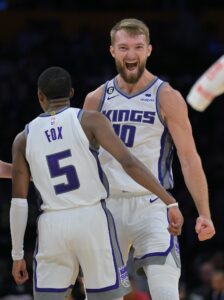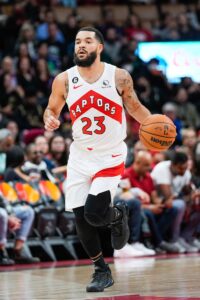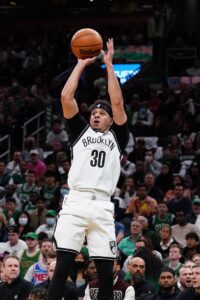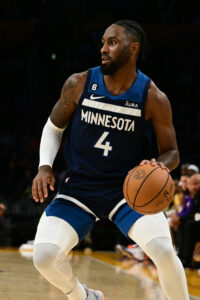Besides being the NBA’s only two teams with any cap room still available this season, the Pacers and Spurs are also the only two clubs whose team salaries remain well below the league’s salary “floor.”
As we explain in a glossary entry, the salary floor is the minimum amount that NBA teams are required to spend on player salaries in a given season. That amount is set at 90% of the season’s cap, rounded to the nearest thousand. So, since the cap for the 2022/23 campaign is $123,655,000, the floor is $111,290,000.
By our estimation, the Pacers’ team salary for the 2022/23 season is just under $96MM, while the Spurs’ figure is just shy of $95MM. Both clubs have the ability to create upwards of $28-30MM in cap room — they’re also both more than $15MM short of the salary floor.
There’s no rule stating that the Pacers and Spurs must sign free agents or trade for players to make up that $15MM+ difference. Last season, for example, the Thunder finished the season far below the salary floor.
In that scenario, the team is simply obligated to make up the difference by distributing the shortfall to the players on its roster. Oklahoma City players earned a nice year-end bonus last season, and players in Indiana and San Antonio may be hoping that their teams don’t add major salary in the coming months so that they’ll get similar salary bumps at the end of this season.
However, it’s unlikely that the Pacers and Spurs will both simply let all of their leftover cap room go unused. It figures to come in handy leading up to the February 10 trade deadline, when teams around the NBA may be looking to shed a contract or two. Indiana and San Antonio are well positioned to accommodate salary dumps if their trade partners entice them to take on unwanted contracts by attaching draft picks and/or young prospects.
The two teams’ cap room will also allow them to explore mismatched trades. For instance, there have been rumors that the Lakers and Spurs have discussed the possibility of a deal that would send Russell Westbrook and draft compensation to San Antonio in exchange for Doug McDermott and Josh Richardson. McDermott’s and Richardson’s combined cap hit is just below $26MM, which wouldn’t be nearly enough to match Westbrook’s $47MM+ salary if both teams were operating over the cap. But the Spurs could take on that extra salary using their cap space.
As we discussed last week, the Pacers have another potential path for using a big chunk of their cap room and getting above the salary floor. Signing Myles Turner to a contract extension that includes a salary renegotiation for the current season, giving him an immediate raise, would be a way to make use of their cap flexibility and incentivize Turner to sign on the dotted line, assuming there’s mutual interest in a long-term deal. The Spurs don’t have any player eligible for renegotiation.
The Thunder’s relative inactivity at last season’s trade deadline is a reminder that we shouldn’t necessarily expect major action when a team is sitting on unused cap room during the season. Still, it’s safe to assume that teams around the league will be in touch with the Pacers and Spurs in the coming weeks and months, proposing creative ways for the two clubs to make use of their cap flexibility. Indiana and San Antonio will be two teams worth watching closely as February 10 nears.
 The Kings addressed their outside shooting in all sorts of different ways, drafting
The Kings addressed their outside shooting in all sorts of different ways, drafting  Certain extension-eligible players, including perhaps
Certain extension-eligible players, including perhaps 
